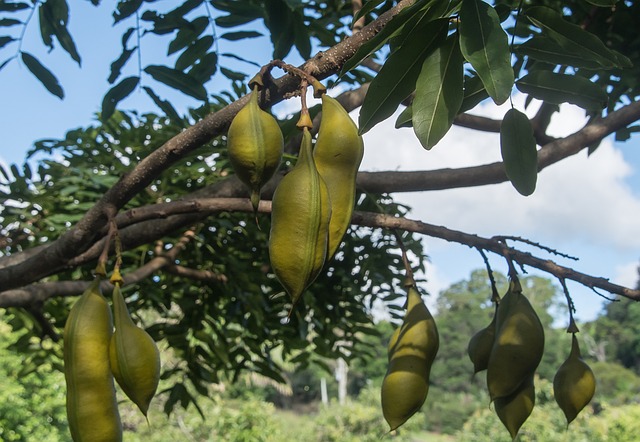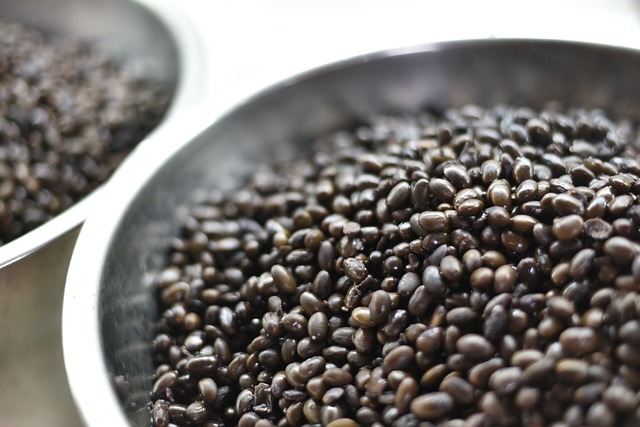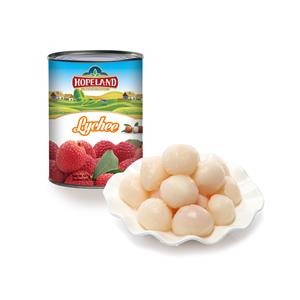Black Peas Nutrition: A Powerhouse of Health Benefits
Black peas, also known as black mapte or black gram (Vigna mungo), are small legumes that pack a nutritional punch. Popular in various cuisines across the world, particularly in South Asia, black peas are cherished not just for their earthy flavor but also for their impressive health benefits. Let’s dive into the nutritional profile of black peas and why they deserve a place in your diet.

Nutritional Profile of Black Peas
Black peas are nutrient-dense, offering an array of vitamins, minerals, and other beneficial compounds. Below is a breakdown of their nutritional value per 100 grams (raw):
· Calories: Approximately 340 kcal
· Protein: 24 grams
· Carbohydrates: 59 grams (complex carbs, including dietary fiber)
· Fiber: 18 grams
· Fat: 1 gram
· Vitamins:
o B-vitamins (B1, B2, B3, B6, and folate)
o Vitamin C (in small amounts)
· Minerals:
o Iron
o Magnesium
o Potassium
o Calcium
o Phosphorus
Black peas are also rich in antioxidants and bioactive compounds, including flavonoids and polyphenols, which contribute to their health-promoting properties.
Top Health Benefits of Black Peas

1. Rich Source of Plant-Based Protein
Black peas are an excellent plant-based protein source, making them ideal for vegetarians and vegans. Proteins are essential for muscle repair, growth, and overall cellular function. Including black peas in your diet can help meet your daily protein requirements without relying solely on animal products.
2. High in Dietary Fiber
With 18 grams of fiber per 100 grams, black peas are a fantastic food for digestive health. Fiber helps regulate bowel movements, prevents constipation, and supports a healthy gut microbiome. It also aids in maintaining stable blood sugar levels and promotes a feeling of fullness, making it a great option for weight management.
3. Packed with Iron for Energy Production
Black peas are a good source of iron, a mineral crucial for red blood cell production and oxygen transport in the body. Consuming black peas regularly can help prevent iron-deficiency anemia, particularly in women and children who are more prone to iron deficiencies.
Pro Tip: To enhance iron absorption, pair black peas with a source of vitamin C, such as tomatoes or citrus fruits.
4. Heart-Healthy Nutrients
The potassium, magnesium, and fiber content in black peas make them a heart-healthy food. These nutrients help regulate blood pressure, reduce bad cholesterol (LDL), and improve overall cardiovascular health. The antioxidants present in black peas also protect the heart by reducing oxidative stress.
5. Supports Bone Health
Black peas contain calcium and phosphorus, which are essential for maintaining strong and healthy bones. Regular consumption can help reduce the risk of bone-related conditions like osteoporosis, especially in older adults.
6. Manages Blood Sugar Levels
The low glycemic index (GI) and high fiber content of black peas make them a suitable food for managing diabetes. They help slow the release of glucose into the bloodstream, preventing spikes in blood sugar levels and promoting better glycemic control.
How to Incorporate Black Peas into Your Diet
Black peas are versatile and can be used in a variety of dishes, from soups to salads. Here are some ideas to include them in your meals:
· Curries and Stews: Add cooked black peas to curries or stews for a protein and fiber boost. They pair beautifully with spices like turmeric, cumin, and coriander.
· Salads: Toss black peas into salads for a hearty and nutrient-rich addition. Combine with fresh vegetables, olive oil, and a squeeze of lemon juice for a refreshing dish.
· Soups: Use black peas as a base for a comforting soup. Blend them with vegetables and herbs to create a creamy, flavorful meal.
· Side Dish: Season boiled black peas with garlic, chili, and a dash of olive oil for a simple yet nutritious side dish.
· Snacks: Roast black peas with your favorite spices for a crunchy, healthy snack.
Tips for Cooking Black Peas
Cooking black peas is simple, but soaking them beforehand can help reduce cooking time and improve digestibility. Follow these steps for perfectly cooked black peas:
1. Soak: Rinse and soak black peas in water for 6-8 hours or overnight.
2. Boil: Drain and rinse the soaked peas, then boil them in fresh water until tender. This can take about 25-30 minutes on the stovetop or 10-15 minutes in a pressure cooker.
3. Season: Once cooked, season with your favorite herbs and spices or incorporate them into your recipe of choice.
Conclusion
Black peas are a powerhouse of nutrition, offering an abundance of protein, fiber, and essential vitamins and minerals. Whether you’re looking to boost your protein intake, support digestive health, or add heart-healthy nutrients to your diet, black peas are a fantastic option.
By exploring the many ways to cook and enjoy black peas, you can create delicious and nutrient-packed meals that contribute to your overall health and well-being. Add black peas to your grocery list today and savor the benefits they bring to your plate and your body!




